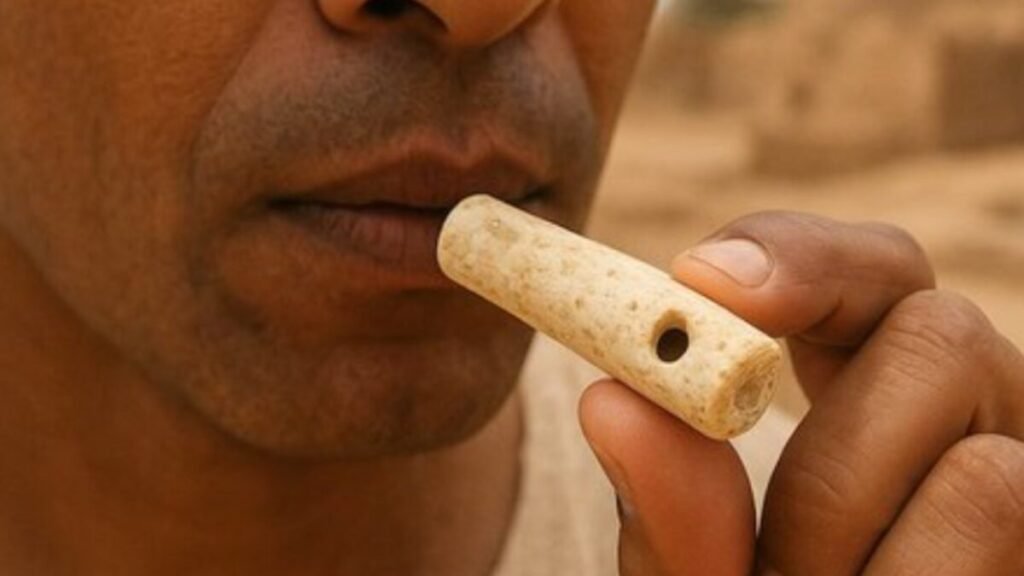A Whisper Uncovered in Amarna: Unveiling the Secrets of Ancient Egyptian Daily Life

The ancient Egypt is often remembered through pyramids, temples, and pharaonic treasures. However, the recent discovery of a whistle made of cow bone in Amarna sheds light on the daily life, communication, and sounds of the workers and common inhabitants of that civilization.
A modest find with great value
The whistle was found in the city founded by Akhenaten around 1347 BC. Made from a cow’s phalanx bone with a precise perforation, the object stood out due to its rarity, not fitting into common ornaments, tools, or game pieces.
An instrument for signals and warnings
Through experimental tests, researchers confirmed that the whistle emitted a powerful and sharp sound, enough to serve as a signal in a work or surveillance environment. Although its function is not directly evidenced, it is hypothesized to have been used to coordinate tasks, warn of dangers, or attract attention from afar.






